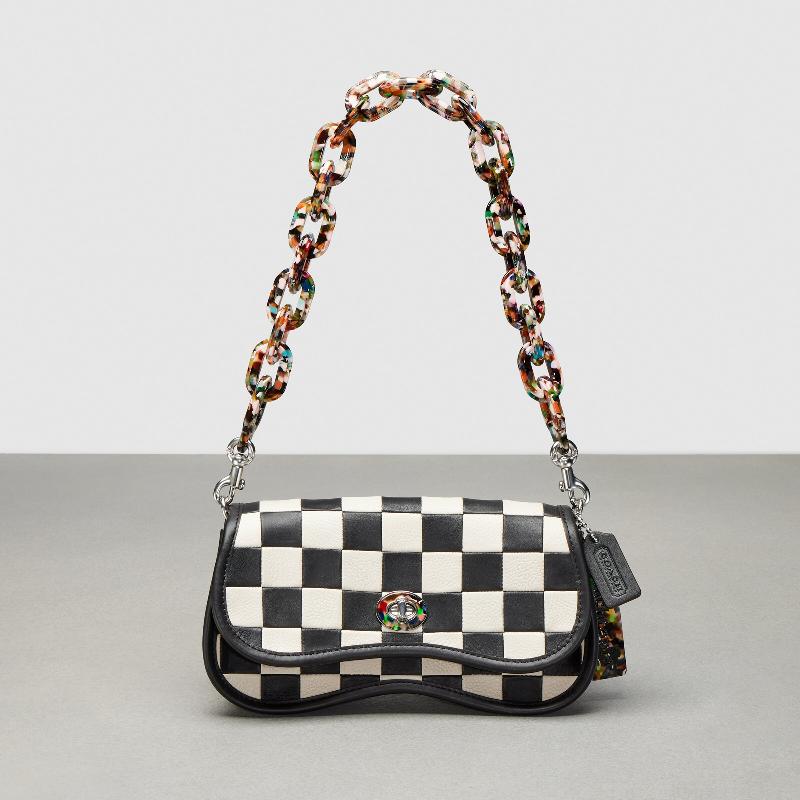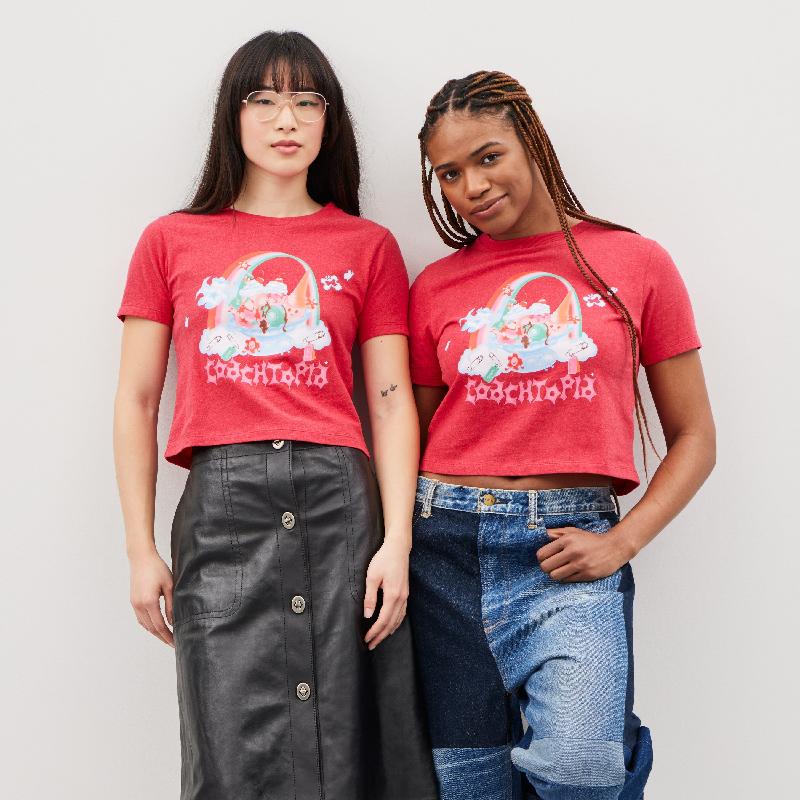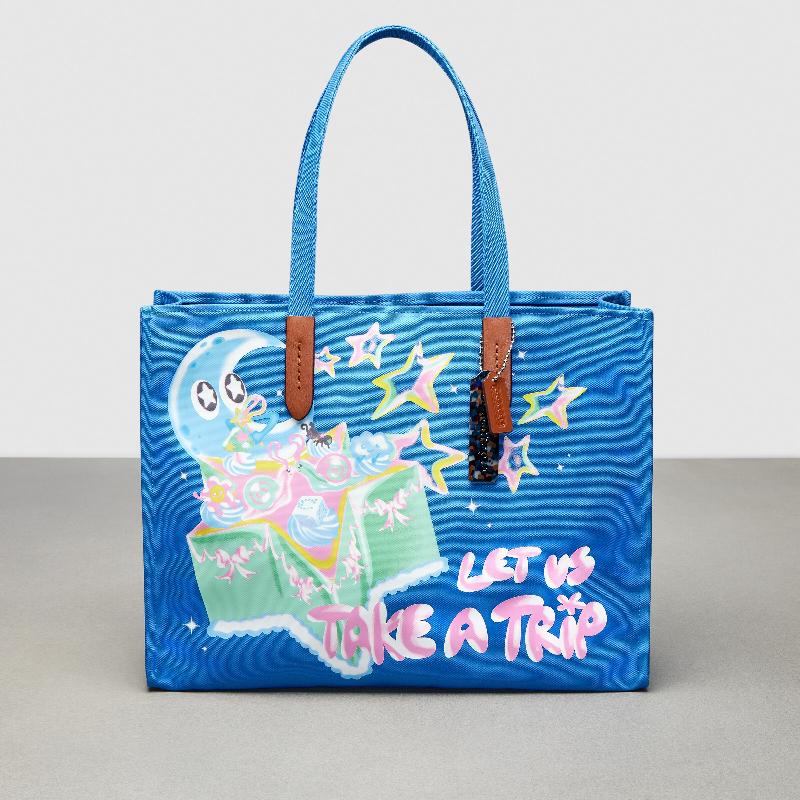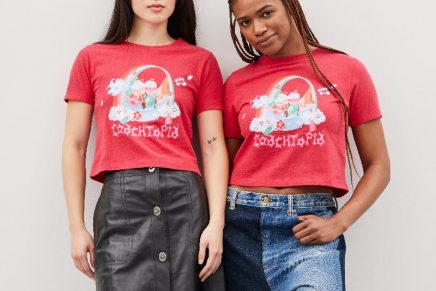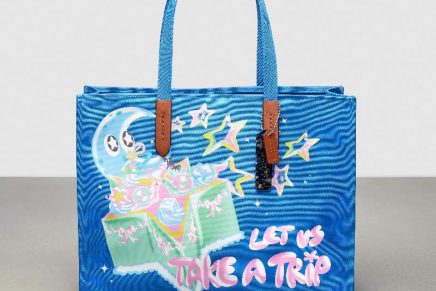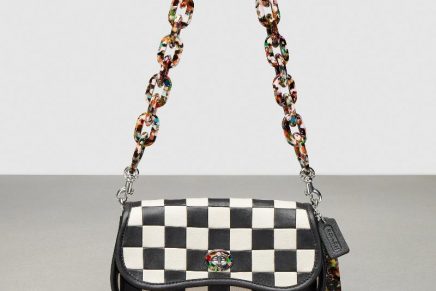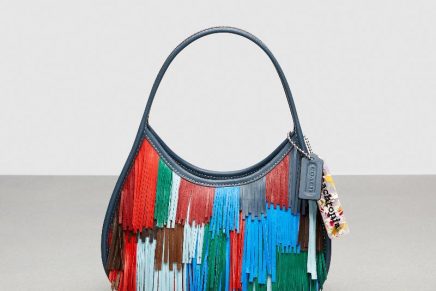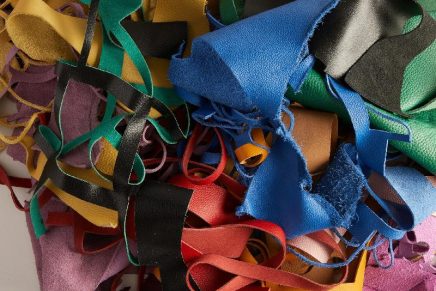Coach launches Coachtopia, a new sub-brand focused on circular craft and collaborative creativity, catalyzing the brand’s progress towards a fully circular business model. Launching in the United States, Canada and the UK, Coachtopia will expand to Asia later this year.
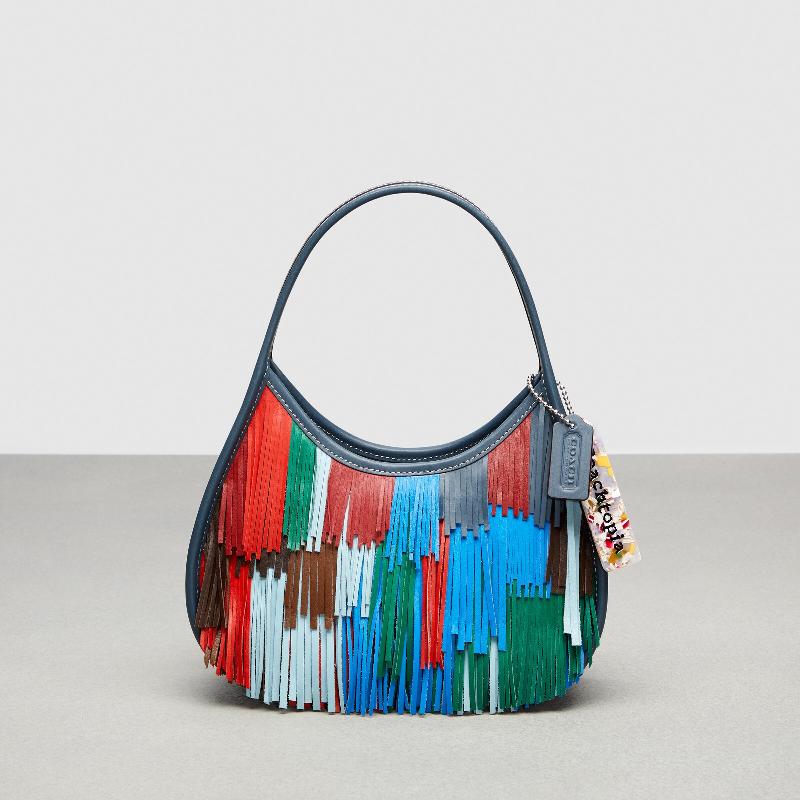
With a mission to help advance a circular fashion system, Coachtopia is built from the outset for circularity, grounded in its Made Circular design philosophy—a set of three principles that inform how the sub-brand designs, crafts, and reuses products. @Coachtopia by @Coach
The new Coachtopia brand reimagines the product lifecycle from end to beginning— reducing the creation of new materials by crafting with waste and designing products that can be reimagined, remade and recycled to live multiple lives. In so doing, it is working to create beautiful things that have a significantly reduced impact on the planet compared to conventional luxury products.
The recent announcement by Coach launching their new sub-brand Coachtopia, focused on circular craft and collaborative creativity, is an attempt by the brand to progress towards a fully circular business model. The Made Circular design philosophy is the backbone of the sub-brand, based on three principles that inform how the sub-brand designs, crafts, and reuses products. Coachtopia is working towards creating beautiful things that have a significantly reduced impact on the planet compared to conventional luxury products, and the brand is resetting the paradigm between brand and consumer.
While it is commendable that a luxury fashion brand such as Coach is taking steps towards circular fashion practices, there are some critical concerns that need to be addressed. Firstly, the sub-brand is limited to certain regions, which means that a significant portion of their global consumer base will not be able to access these sustainable products. As a luxury fashion brand, Coach’s primary customer base is affluent consumers who have a higher carbon footprint than the average consumer.
Moreover, the brand’s circularity claims need to be scrutinized as the concept of circularity is still evolving, and there is no set standard for what makes a product truly circular. While Coachtopia aims to reimagine the product lifecycle from end to beginning, the sub-brand has launched with a new collection of bags, accessories, ready-to-wear, and footwear made with recycled, repurposed, and renewable materials. However, the brand has not provided details about the percentage of recycled materials used, the types of materials used, or how they were sourced. Additionally, the brand has not stated any concrete targets or timelines for achieving their circularity goals.
It is also unclear how Coach plans to address the issue of overconsumption, which is a significant contributor to the environmental impact of the fashion industry. While Coachtopia claims to be working towards reducing the creation of new materials by crafting with waste and designing products that can be reimagined, remade, and recycled to live multiple lives, there is still a risk that this approach could lead to increased consumption of fashion products.
“Circularity is about reimagining not just the product lifecycle, but the relationship between brand, planet and consumer. That’s why we’ve created Coachtopia as both a discovery lab to pioneer circularity in fashion and a collaborative platform for change,” says Joon Silverstein, SVP, Global Marketing, Creative and Sustainability at Coach and Head of Coachtopia. “We know that to transform our impacts, we need to fundamentally shift mindsets—from seeing opportunity in waste to designing backwards to taking a more open-source approach to creativity. We’ve built Coachtopia as an entirely new world within Coach—an agile start-up with a mission to reimagine the end-to-end system. We’re building it not just for our consumers, but with them, inviting a growing community of hundreds of Gen Z individuals to join us on our Slack channel, collaborate with us on products, take center stage in our content and campaigns—and reimagine our future together.”
Finally, while the brand has created a collaborative platform for change and invited a growing community of hundreds of Gen Z individuals to join them on their Slack channel, the extent of their involvement in the design and production of the products is not clear. It is important to ensure that the involvement of the community goes beyond just providing feedback and extends to co-creating and shaping the products’ design and production processes.
In conclusion, while Coach’s efforts towards circular fashion practices through Coachtopia are commendable, there are still critical concerns that need to be addressed. The brand needs to be more transparent about their sustainability practices, including their sourcing of materials and their circularity goals. Additionally, the brand needs to address the issue of overconsumption and ensure that their collaborative platform involves the community in the co-creation of sustainable products.


